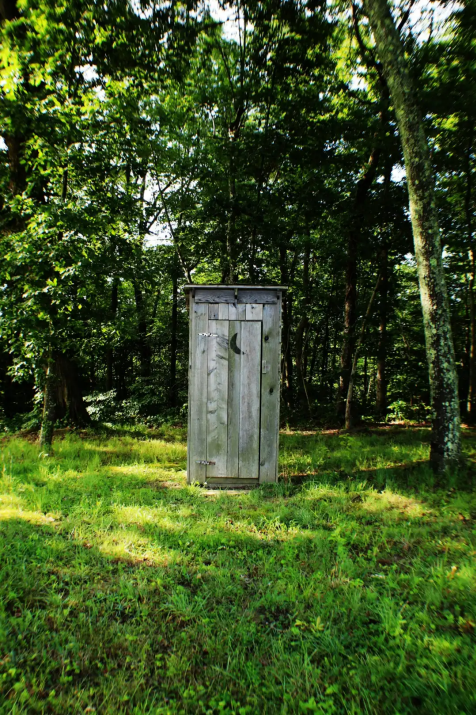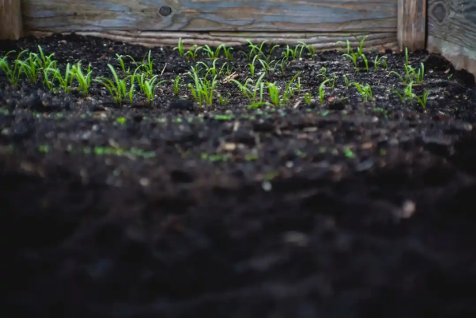Although many people believe that chemical fertilizers are the ‘necessary evil’ for gardens to grow healthy over a period of time, more and more people are returning to the traditional, and arguably more meticulous approaches of composting.
First and foremost, composting enriches the soil and helps it retain its moisture while suppressing a broad spectrum of plant pests, unlike chemical fertilizers that negatively impact microorganisms that reside within the soil.
The ingredients you can include in your compost heap can be anything from printer paper, cardboard, over vegetarian manure, tree leaves, and vegetable scraps of food, to human waste. Today we’ll talk about the latter, and the 3 things you didn’t know about composting human waste, so without any further ado, let’s dive straight into it.
1. Urine-diverting toilets can cut your job in half
Approaching the composting process requires quite a bit of planning, and many people find the process arduous, to say the very least. However, it can actually be simplified to the point that it becomes almost as easy as composting rotten vegetarian foods.
One of the biggest challenges farmers and garden owners face when composting human waste is how to collect it. Namely, many modern farmers have fairly advanced plumbing solutions, and it seems as if only the most traditional farmers have stuck with the old concept of having cesspits and outhouses.
Obviously, the latter category doesn’t really have to struggle too much with the collection of waste, as it’s already compiled and contained in one isolated location. Farmers and gardeners with slightly more advanced plumbing systems sometimes struggle with collecting adequately damp/wet human waste.
A perfect solution for this particular scenario is upgrading to a urine-diverting toilet, which features separate pipes for urine and feces. This way, the feces will remain damp, which makes it ideal and readily usable for composting.
Wet human waste can contaminate the groundwaters while damp waste is much less likely to do so. Additionally, damp human waste will meld with the compost’s ingredients much faster, and much more efficiently.

2. Urine can be used as a fertilizer
Urinating on the plants can actually be fairly beneficial, despite how barbaric it may sound. Despite the fact that most of our ancestors resorted to this approach given that they did not have access to modern-day technologies (and chemical fertilizers), and various studies have confirmed that this all-natural approach helped the plants grow to be perfectly healthy.
More recent studies have put a big question mark on this approach, as we’ve learned that human urine possesses antibacterial properties.
In plain words, certain bacteria are capable of breaking down organic matter, leading to the creation of nutrient-dense compost. By releasing carbon dioxide, these nutrients cause composts to safely heat up, which promotes the healthy growth of beneficial microbes.
However, materials that feature antibacterial properties in sufficient quantity (and of relevant quality) can kill beneficial bacteria and microbes, putting the growth of the compost to a dead stop, and possibly even reversing its growth process.

Furthermore, the ammonium concentration in human urine releases vapors that are hazardous to the plant’s leaves, which can essentially burn the vegetation when combined with the abundance of carbon dioxide that the bacteria have accumulated.
On another hand, more recent studies have shown that only fresh human waste possesses strong concentrations of ammonia and antibacterial properties; this further means that, if collected after a certain period of time and under the presumption that the container wasn’t introduced to fresh waste during that time, urine is perfectly safe for fertilization.
Now, as for the main reason why urine should be used for fertilizing compost in the first place; it is remarkably rich in phosphorus, as well as in nitrogen, both of which prevent plant-based infections, and diseases, and are known pest repellants.
The most recent studies show that stored urine does not hinder bacterial DNA, which further means that its antibacterial properties won’t pass over to the microbes within the compost.
3. Using human waste compost can minimize erosions
Erosion is a natural process by which soil and dissolved material are removed by natural forces, such as the wind, water, and similar natural agents. Despite the fact that its occurrence is outside of human hands, and thus unpredictable and hard to control, there are certain things that farmers and garden-owners can do to minimize its effects – using human waste compost is one of them.
Namely, erosion is typically caused by the excess of water, and the water’s ability to pass through the ground is determined by the quality of the soil. The quality of soil is largely affected, if not even determined in some cases by the type of compost and fertilizers used to enrich it and make it suitable for plant growth.
Moving water is impacting the soil more than the water’s fluid properties. The pressure of moving water is damaging the soil, often plucking chunks of it in the process. This means that weak composts and fertilizers aren’t suitable to provide the soil with sufficient durability to withstand water erosion.

However, human waste compost can retain a tremendous amount of water, which can exceed its dry weight ten, or even twentyfold. By limiting the movement of groundwater, or in best-case scenarios, keeping it at bay, the effects of erosion are almost completely negated and delayed by years, if not decades.
That being said, it’s important to accentuate the fact that not all types of composts possess such abilities. Given that composts can be comprised of a variety of different ingredients, not all of them are sturdy and durable, and not all of them can provide the soil with erosion-preventive perks.
Grass clippings and tree leaves meld together pretty easily, but they’re not as firm as dry human waste. All forms of cardboard and papers would easily dissolve when put against a strong pressure of groundwater. Animal manure is the closest to human waste in terms of protecting the soil against erosion, although the latter is far superior at it.
We hope that this brief rundown was useful to you and that you have learned something new today about composting human waste. Make sure you are staying safe in these times we are all going through and have a good one, guys!

Comments
Post a Comment